
Clams: the Beneficial Bivalve
Like oysters, the hard clam (Genus Mercenaria) has tremendous potential to aid in the reduction of nutrients in the Indian River Lagoon (IRL), which not only encourages seagrass growth, but makes them another great source for filtering water.
Since the lagoon is in such need for natural water filtration, Brevard Zoo accepted an invitation from University of Florida Whitney Lab to partner on a hard clam restoration project. Mercenaria is a native species of clam that had experienced significant decline.
Clam Bed Restoration
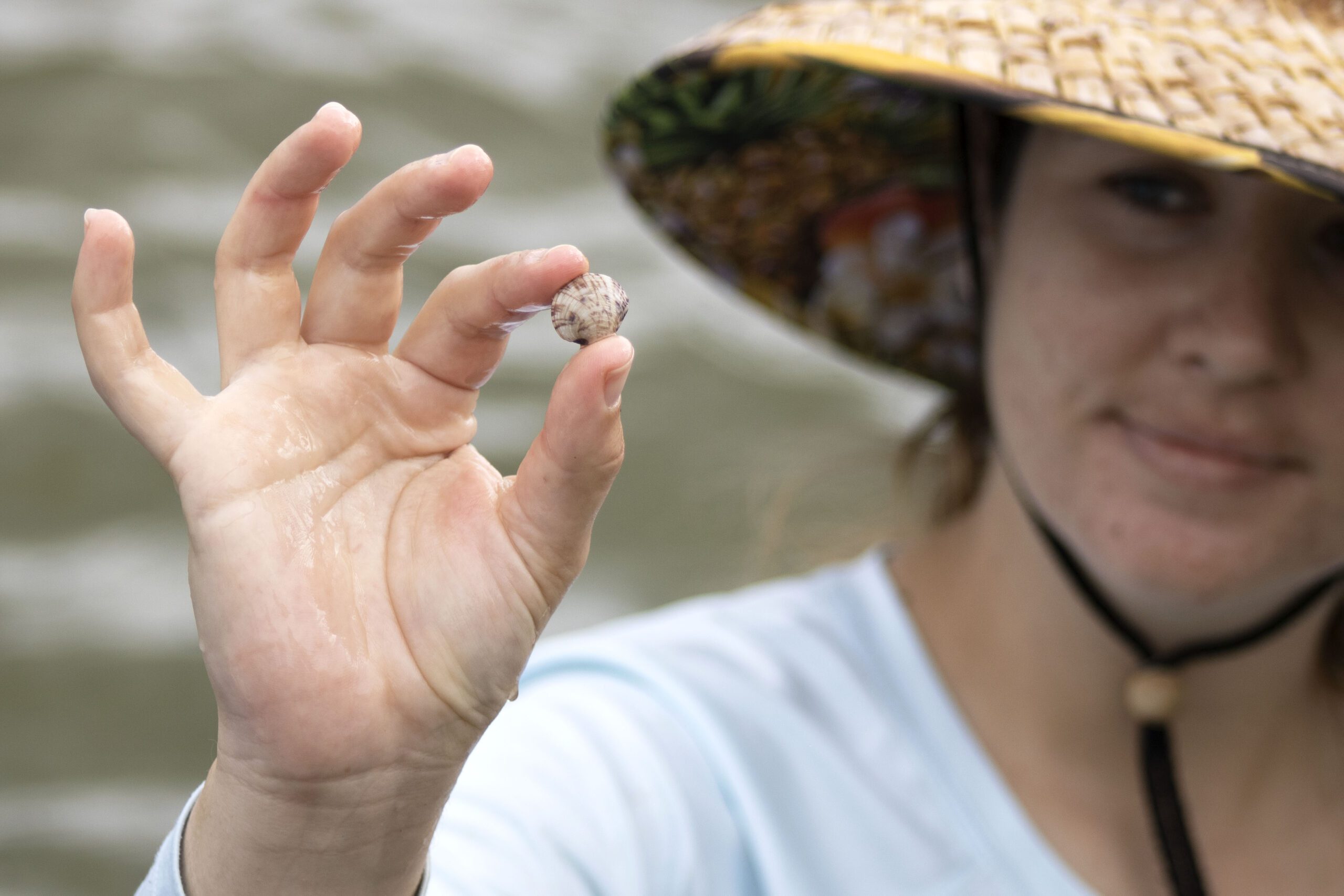
The Challenge
Funded by St. Johns Water Management District under a water quality grant, this specific project’s goal was to:
- Plant 5 million seed clams and 3 million juvenile clams in the IRL.
- Boost natural hard clam populations.
- Determine a process for identifying which sites may or may not be right for clam restoration.
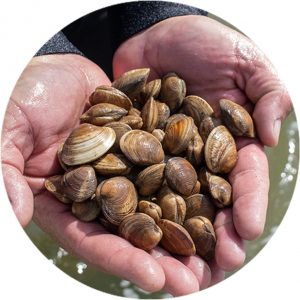
Super Clam Stock
Clams derived from the University of Florida Whitney Laboratory “super stock.”
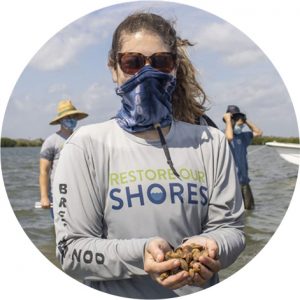
Lagoon Locations
Residents living along the Lagoon help plant clam stock.
The Execution
Brevard Zoo’s Restore Our Shores (ROS) team were responsible for the execution and monitoring of the plantings. ROS chose 100 sites throughout the Mosquito and Indian River Lagoons, spanning from New Smyrna to Sebastian, with most sites being in Brevard County. The 10’x15’ clam bed plots were planted in November 2021.
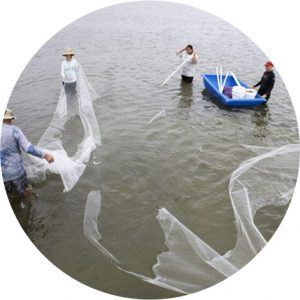
Clam Planting
Planted clams are covered by nets for protection and “seed clams” spread on existing oyster reefs.
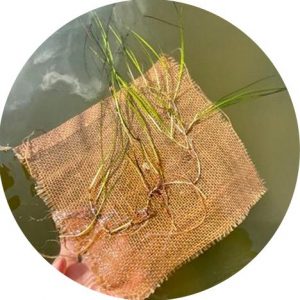
Aquatic Grasses
Aquatic grasses added to certain clam beds absorb excess nutrients and provide a habitat to small marine animals.
The Results
Our measures of success have included monitoring in Winter, Spring and Summer of 2022 for survival rates, clam growth, species richness, salinity, temperature, turbidity, and water depth. The results of this project have greatly influenced how the ROS team approaches clam restoration in terms of site selection.
If you are interested in more information:
Clam Bed Restoration
Help Us With Clam Restoration
The Next Generation of Clam Restoration
The ROS team is happy to announce that, in partnership with Brevard County Natural Resources, a new pilot project is now underway in 2023. Clam Gardening is an evolution of our Oyster Gardening project, allowing lagoon-front properties to host bivalves off their docks.
Sites were chosen for clam gardening based on our previous 2021-2022 clam restoration project results. The clams will be placed in mesh bags and delivered to homeowners for the growing season. Instead of hanging from docks, as is done in oyster gardening, the clam bags will be placed on the lagoon floor.
Once the growing season has concluded, the ROS team will pick up the bags and plant the clams at a permanent restoration site. Since this is a pilot project, the future of this program is dependent on the success of this season, but we are hopeful for its success and look forward to being able to expand the program in years to come.
Clam Gardening
Help Us Restore Our Shores
We always need volunteers for our lagoon restoration projects. Our work would not be possible without the help of volunteers. We encourage you to investigate what availability we have for participants in our programs. We look forward to having you support Restore Our Shores. More Questions? Email us.
